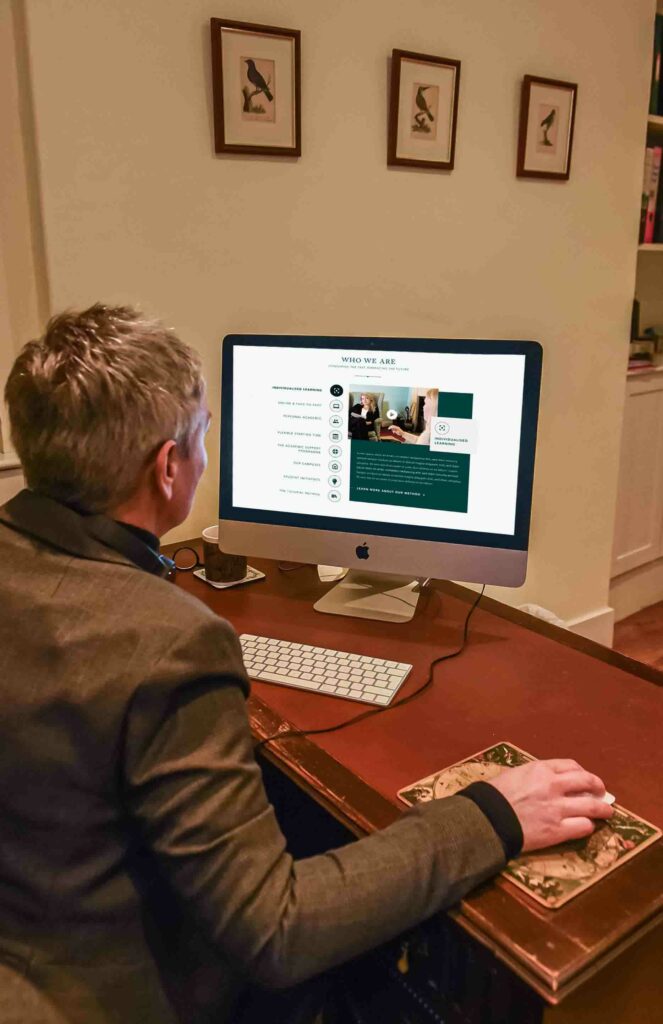
TRIAL EXAMINATIONS
Students at Greene’s undertake trial examinations throughout the academic year.
WHAT IS A TRIAL EXAMINATION?
Trial examinations can help you to review the extent to which you are on track to achieve your target grade, and to calm pre-examination nerves. Trial exams are particularly useful if you feel you need extra testing and feedback on how ready you really are for the actual exam itself.
If you are working on your own – or with minimal support – through a GCSE or A level qualification, trial exams can keep you on track and provide you with feedback on how close you are to the grade you need.
A Greene’s trial examination is an opportunity to replicate as closely as possible the conditions with which you will be faced in the real exam. The sooner you begin to prepare, the better. All of our full-time sixth form students undertake trial examinations throughout the academic year to become acquainted with the examinations process and better prepared for their final examinations.
THE REGISTRATION PROCESS for external candidates
There are five steps to registering for Greene’s trial examinations, if you are not a full-time student at Greene’s:
- Application: complete an online application by following the link above;
- Selection of your trial exam paper: either you can choose a paper in your application or, with guidance from you, we can choose one on your behalf;
- Taking your trial examination: either you can sit a self-invigilated trial examination at home or come into Greene’s, where the trial examinations are invigilated under full examination conditions;
- Marking and grading your mock exam script: once we have received your mock exam script it will be marked and graded by one of Greene’s approved examination assessors, and returned to you. We aim to do this promptly from the time we receive the completed paper;
- Feedback on your script: in addition to our marking and grading of your script, you will receive a short feedback report, highlighting areas that may need further work.
All your results and marked scripts are available using your login to our online learning platform – called Greene’s Online – for you to review from anywhere and at any time.
If you need more help preparing for your exams, we offer complementary academic support for full-time students, and additional academic support for external students and candidates.


SET TRIAL EXAMINATIONS DATES
| Trial examination series | Invigilated trial exam date |
|---|---|
| Hilary Term 2024 | Tuesday 16th, Wednesday 17th, and Thursday 18th January 2024 |
| Tuesday 27th, Wednesday 28th, and Thursday 29th February 2024 | |
| Michaelmas Term 2024 | Early UCAS deadline applicants only: Tuesday 24th, Wednesday 25th, and Thursday 26th September 2024 |
| Tuesday 19th, Wednesday 20th, and Thursday 21st November 2024 | |
| Hilary Term 2025 | Tuesday 21st January, Wednesday 22nd, and Thursday 23rd January 2025 |
| Tuesday 4th, Wednesday 5th, and Thursday 6th March 2025 |
Please ask us about the trial examinations you can take at home; we can advise you on how best to organise your self-invigilated trial examinations. For invigilated mock exams at Greene’s, we will accept applications as close to the scheduled trial exam days as possible – although, as places are limited, all applications are treated on a first-come-first-served basis.

FEES
| Trial examination candidate fee (1st September - 31st August) | £75 per year |
| Invigilated at Greene's on a set trial exam day | £85 per trial exam |
| Invigilated at Greene's on a day of choice that is not a set trial exam day | £105 per trial exam |
| Self-invigilated (at home) | £50 per trial exam |
The above fees currently do not include VAT. All listed fees are subject to additional VAT costs.
HOW TO PREPARE FOR YOUR TRIAL EXAMINATION
To get the best out of your trial exam, we highly recommend that you prepare thoroughly and think carefully about the following points:
- Working against the clock;
- Understanding the format of your exam – e.g. selecting questions, the weighting of marks, etc.;
- Revising – e.g. memorising, learning techniques, organising work etc.;
- Structuring your answers – e.g. layout, showing working, planning, paragraphing, conclusions etc.; and
- Using only the relevant knowledge for specific question types.
There are also a number of helpful sources of information available to you on the examination board websites, such as:
- Mark schemes – they illustrate the importance of paying attention to assessment objectives, mark allocations, how to answer specific questions; and
- Examiners’ reports on past examinations you may have already tried.

